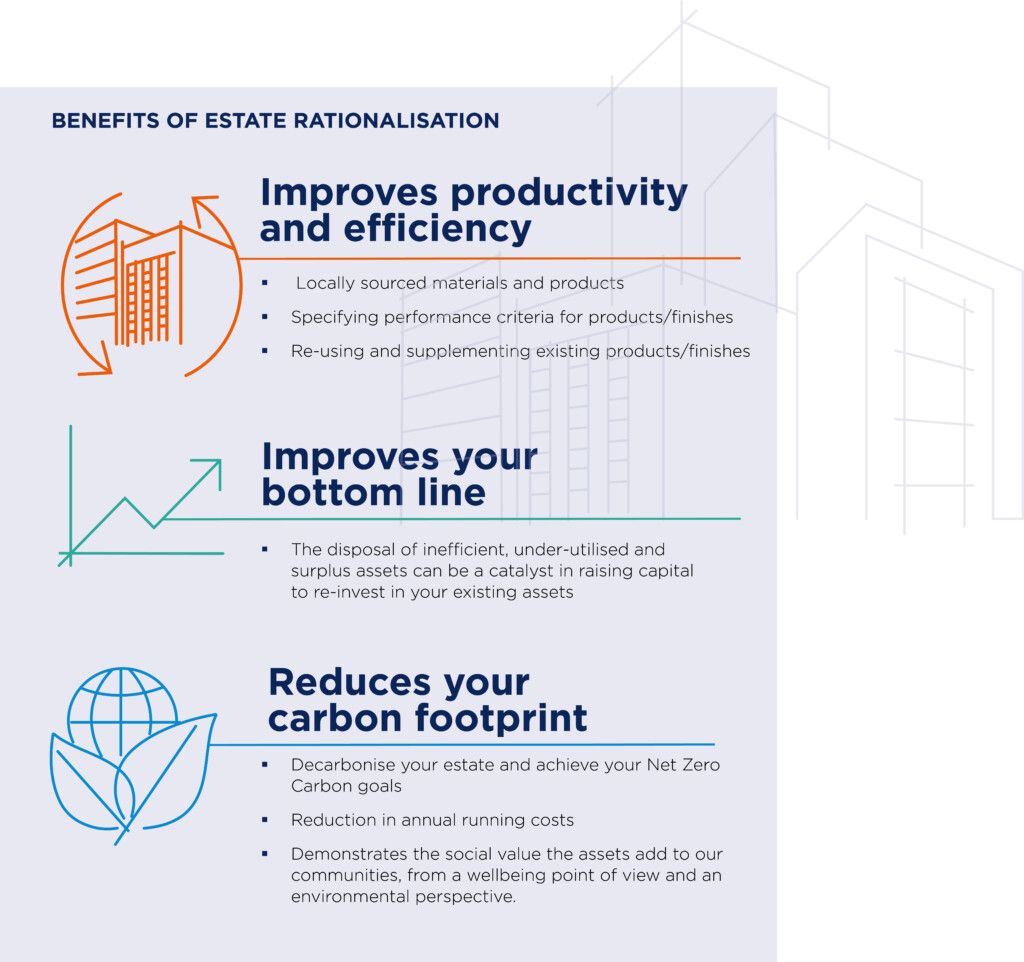More than one third of UK mid-sized companies expect to reduce the amount of office space they hold in the future, according to an accountant’s survey of business leaders. COVID-19 has accelerated a need to re-align assets and operations with an organisation’s business strategy. Many organisations are looking for a leaner and more efficient approach to delivering their core function.
An estate rationalisation strategy can create a smaller and significantly better estate that effectively supports an organisation’s business activity. It is vital that buildings operate as efficiently as possible and are occupied in the most cost-effective way. This ensures they are not being under-utilised and that the potential to use premises in new and more flexible ways is being maximised. These considerations must be underpinned by a robust estate finance strategy and a rolling programme of maintenance, repair and capital expenditure.

Funds generated through the reconfigurations of a property portfolio can generate major improvements and new buildings as well as savings through lower running costs.
A bespoke estate rationalisation strategy adapts to changes in business’ needs through people, property and processes. We achieve this by making your assets work for you, covering all property scenarios.
We then implement a strategic asset management and planning to deliver an estate/property portfolio strategy to maximize utilization. We are introducing a culture change and new ways of working.
FURTHER INFORMATION:

Chris Hartley
Partner - Building Surveying and Health & Safety Services


